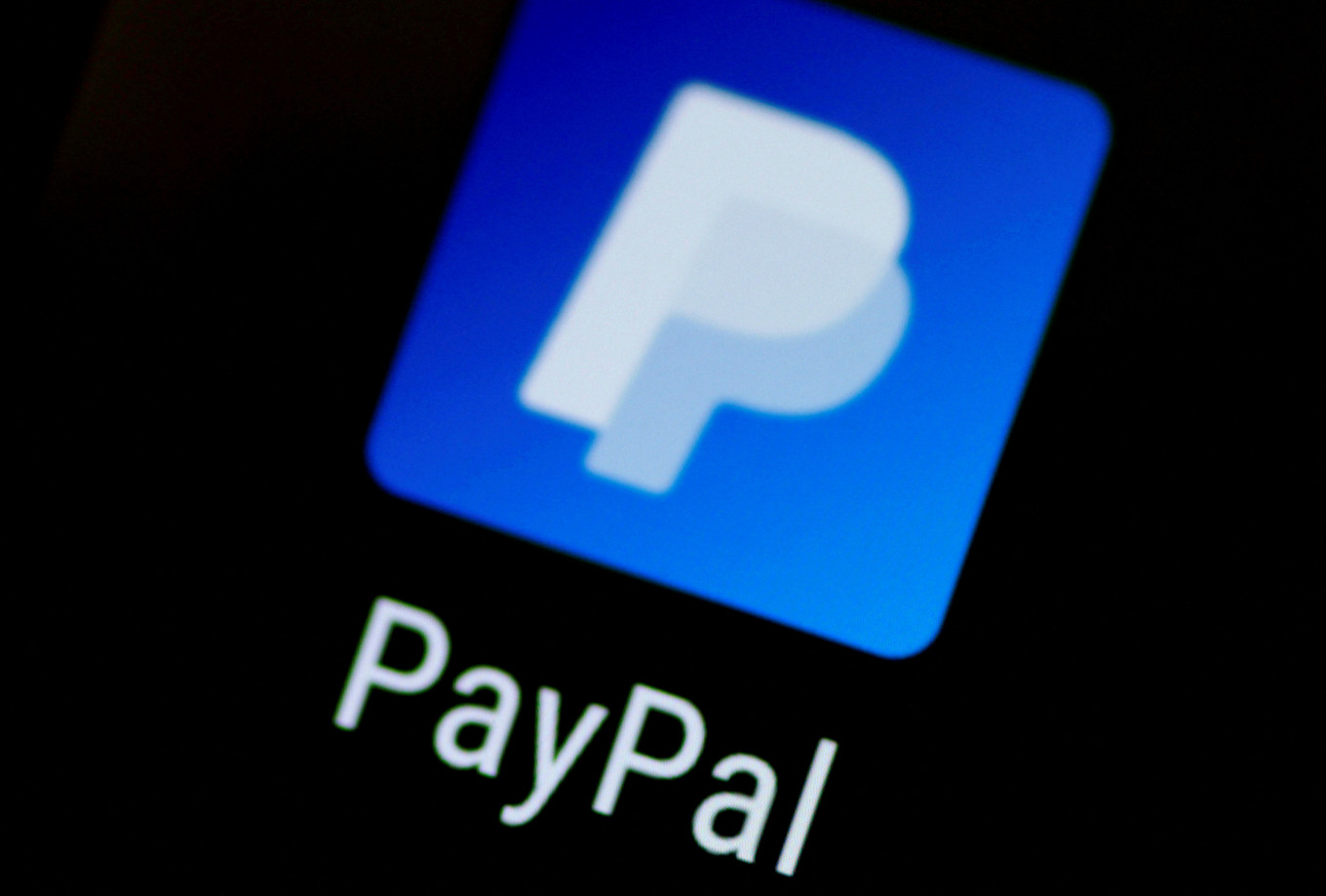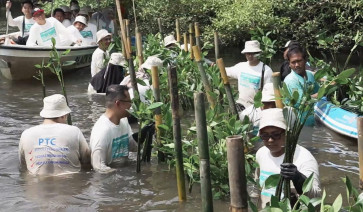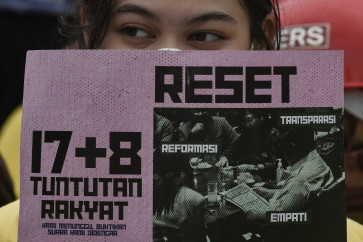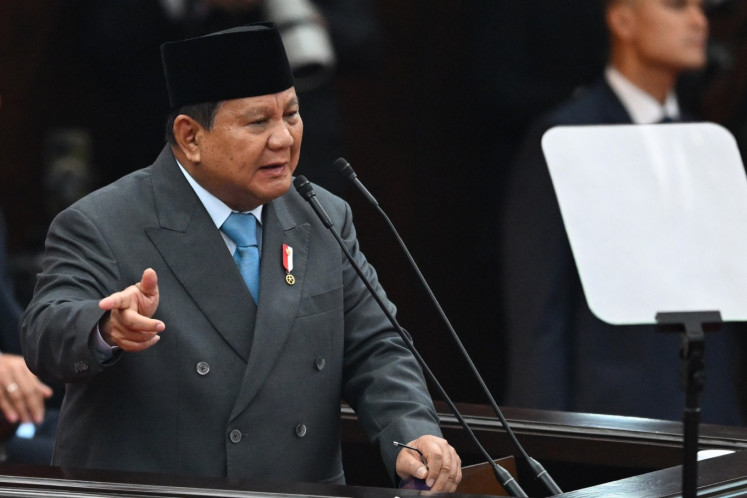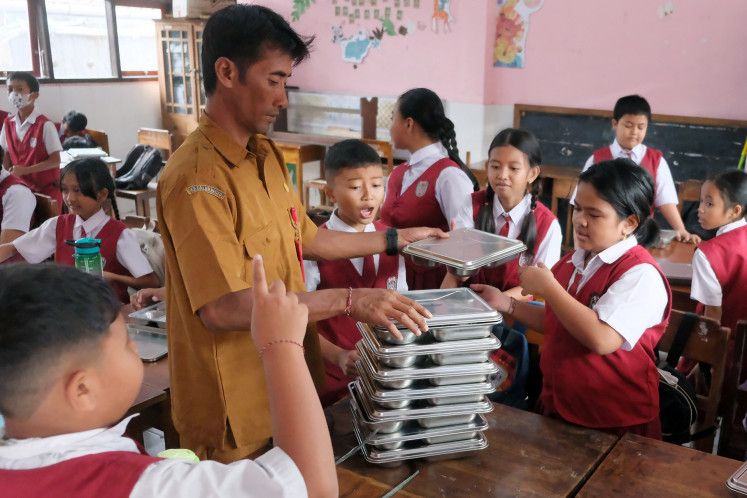Popular Reads
Top Results
Can't find what you're looking for?
View all search resultsPopular Reads
Top Results
Can't find what you're looking for?
View all search resultsGovernment faces public outrage over PayPal blocking
Paypal will remain accessible until Friday before the ministry once again reinstates the blocking if the company still fails to register.
Change text size
Gift Premium Articles
to Anyone
O
utcry over the Communications and Information Ministry’s decision to block access to eight popular electronic services providers (ESPs) and its controversial licensing policy continues, particularly on social media, even after it temporarily opened access to payment gateway platform PayPal on Sunday.
A total of eight ESPs, including Paypal, Yahoo and online game platforms such as Steam, Dota, Counter-Strike, Epic Games and Origin.com, as well as data platform Xandr.com, were all blocked on Saturday for failing to meet last week’s deadline of the licensing policy.
The requirement to register is stipulated in a controversial 2020 ministerial regulation on private ESPs, which also grants the ministry the right to block access to digital platforms if they failed to register by the July 20 deadline.
The government’s ESP regulation has been hugely unpopular, spawning an online movement under the hashtag of #BlokirKominfo (block the Communications and Information Ministry) that criticized the licensing policy as hurting freelance workers who use PayPal and Indonesia's online gaming industry.
The hashtag, which has been used on 70,000 tweets protesting the policy as of Sunday, has set off a trend among social media users of sharing internet memes and ridicule, mostly targeted at Communications and Information Minister Johnny G Plate of the pro-government NasDem Party.
Read also: Govt blocks Yahoo, Steam, PayPal for failing to comply with licensing policy
Freelance artist Irsyad Iranto, 23, is among many Indonesians who have reservations against the ministry’s decision to block Paypal.
Irsyad has been using Paypal for the past two years to sell his work to clients outside of Indonesia.
“Most of the artists I know, including myself, use Paypal. It’s one of the easiest and most accessible ways to receive money from people outside [of the country],” he said on Sunday. “Many people are still using Paypal and access blocking has only made it difficult for [freelancers] like myself. I’d say it is unnecessary.”
Irsyad said that he currently had an ongoing project with an international client that stands to fail if the government were to permanently block Paypal in the long run.
Amid mounting criticism, Informatics Applications Director General Semuel Abrijani Pangerapan told a press briefing on Sunday that access to Paypal had temporarily been restored in order to allow users to access their money.
“With the [Paypal website] being opened, we hope that it will give people the opportunity to move [their money to other systems] so that it will not disappear,” he said.
Paypal will remain accessible until Friday before the ministry once again reinstates the blocking if the company still fails to register.
Paypal is the only exception in this case, while other ESPs which failed to meet the deadline, such as Steam and Dota, remain blocked, Semuel said.
Some 200 foreign and 8,700 domestic private ESPs, including massively popular platforms such as Zoom, Twitter, Facebook, Instagram, WhatsApp, Google and YouTube, had registered with the Communications and Information Ministry before the July 20 registration deadline.
Under the ministry’s ESP regulation, all registered platforms must take down content that "incites unrest" or "disturbs public order" within 24 hours of receiving a ministry instruction to do so. If a platform ignores the order, the ministry can order internet service providers to block access to it.
Read also: Self-censorship concerns grow as Big Tech accedes to cyber policy
Critics fear the policy will be used as a tool for large-scale government censorship and could push tech companies to self-censor just to avoid being blocked.
The Jakarta Legal Aid Institute (LBH Jakarta) described on Sunday the government’s blocking of PSEs as a form of “digital authoritarianism”, saying that it infringed on the public’s right to freedom of information.
LBH Jakarta said that the ministerial regulation was not strong enough to be the legal basis to enforce such blocking and that the regulation had always been problematic, particularly since it allowed the government access to personal information under the guise of law enforcement.
With more than half of the country’s 270 million people having access to the internet, according to a 2020 Statistics Indonesia survey, Indonesia continues to be a significant market for a host of tech platforms, particularly since the country is also known for its social media savvy youths.

